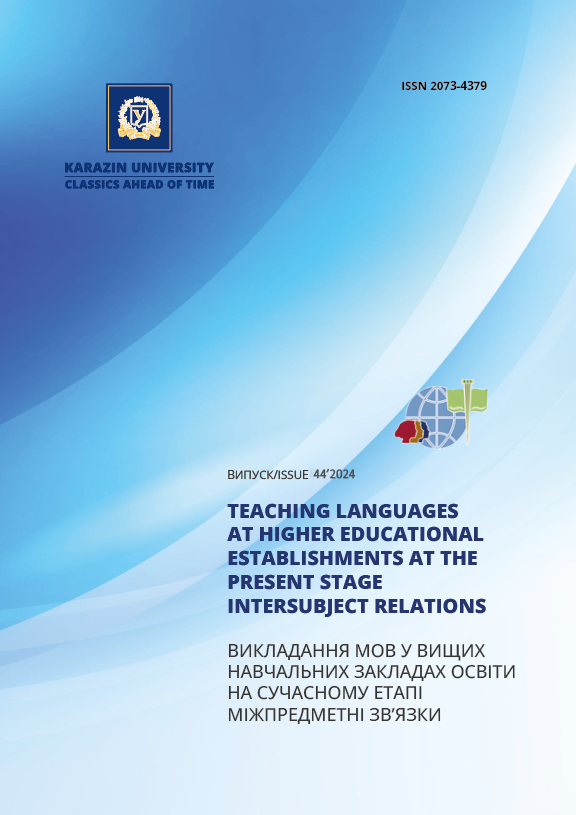Pedagogical grammar as a frame concept for research in the field of foreign language teaching methods. Part 16. Problems of organising pedagogical grammar in teaching
Abstract
The article presents a comparative analysis of two approaches to teaching a foreign language in general and its grammar in particular – acquisition (mainly implicit learning, similar to the mastery of a first language) and learning (based on students’ awareness of the structure and conditions of use of the grammatical structures to be learnt). As the analysis of the available publications shows, there are contradictory points of view on the relationship between acquisition and learning in the classroom teaching process, ranging from the complete denial of the usefulness of one of the above approaches to the search for the optimal ratio of elements of both methods, depending on the specific learning conditions. In the author’s opinion, the problem can be practically reduced to the ratio of types of pedagogical information in the teaching process. The author distinguishes three such types (speech sample, model and rule), which differ in the degree of implicitness (speech sample is implicit, model is semi-implicit and rule is explicit). Acquisition is mainly based on the use of a speech sample as the only type of pedagogical information, while the use of rules and models is typical of teaching that focuses on understanding the structure and conditions of use of the grammatical action that is the object of acquisition. On the basis of the arguments presented in the previous parts of his series of articles, the author proposes a list of conditions favourable to effective acquisition, i.e. even when a speech sample is used as the only type of pedagogical information. On the other hand, the author argues that there are disadvantages of such teaching due to incomplete orientation of students as to the structure and conditions of the corresponding action. The author considers more explicit types of pedagogical information as a means of overcoming this shortcoming and explains the differences between traditional and step-by-step methods of their application. Based on these conclusions, the paper outlines prospects for further research.
Downloads
References
Chernovaty, L. (1999). Osnovy teorii pedahohichnoi hramatyky inozemnoi movy [The Basics of the Foreign Language Pedagogical Grammar Theory]. Doctor of Sciences thesis extended abstract. Kharkiv: V.N. Karazin Kharkiv National University [in Ukrainian].
Chernovaty, L.M. (1995). Transtecon Elementary English Course. Kyiv: Olena Teliha Publishers.
Chernovaty, L. (1990). Grammar Teaching: Inductive vs Deductive Approach Issue Revisited. Poznan: Widawnictwo Naukove VAM “Studia Anglica Poznaniensie”, pp. 111-119.
Chernovaty, L. (2016-2023). Pedagogical grammar as the framework of TEFL research. Parts 1-15. Teaching languages at higher educational establishments at the present stage. Intersubject relations. DOI: https://doi.org/10.26565/2073-4379-2023-43
Crago, M.B., Allen, S.E.M. (2001). Early Finiteness in Inuktitut: The Role of Language Structure and Input. Language Acquisition. 9 (1), pp. 59-111. DOI: https://doi.org/10.1207/S15327817LA0901_02
Galperin, P.I. (1982). Introducción a la psicología. Habana: Editorial Pueblo y Educación.
Gerngross, G., Puchta, H., Thornbury, S. (2008). Teaching Grammar Creatively. ELT Journal. 62 (4), pp. 424-427. DOI: https://doi.org/10.1093/elt/ccn046
Ionin, T. (2013). Developmental Comparisons in Language Acquisition. Language Acquisition, 20 (2), pp. 69-73. DOI: https://doi.org/10.1080/10489223.2013.770977
Jones, R.E. (2001). A consciousness-raising approach to the teaching of conversational storytelling skills. ELT Journal, 55 (2), pp. 155-163. DOI: https://doi.org/10.1093/elt/55.2.155
Leontiev, A.N. (2012). The Development of Mind. Kettering, OH: Erythros Press and Media.
Lichtman, K. (2013). Developmental Comparisons of Implicit and Explicit Language Learning. Language Acquisition, 20 (2), pp. 93-108. DOI: https://doi.org/10.1080/10489223.2013.766740
Niedzielski, H., Chernovaty, L. (1993). Linguistic and technical preparation in the training of technical translators and interpreters. American Translators Association Scholarly Monograph Series. Amsterdam / Philadelphia: Benjamins Publishers. 6, pp. 123-149.
Rastelli, S. (2019). The discontinuity model: Statistical and grammatical learning in adult second-language acquisition. Language Acquisition, 26 (4), pp. 387-415. DOI: https://doi.org/10.1080/10489223.2019.1571594
Trueswell, J.C. (2023). Language acquisition and language processing: Finding new connections. Language Acquisition, 30 (3-4), pp. 205-210. DOI: https://doi.org/10.1080/10489223.2023.2216689
Wilkins, W.K. (1993). Lexical Learning by Error Detection. Language Acquisition, 3 (2), pp. 21-157. DOI: https://doi.org/10.1207/s15327817la0302_2
Yang, Z., Sanchez, H.S. (2022). Teachers’ pedagogical intentions while using motivational strategies. ELT Journal, 76 (4), pp. 508-518. DOI: https://doi.org/10.1093/elt/ccab070

